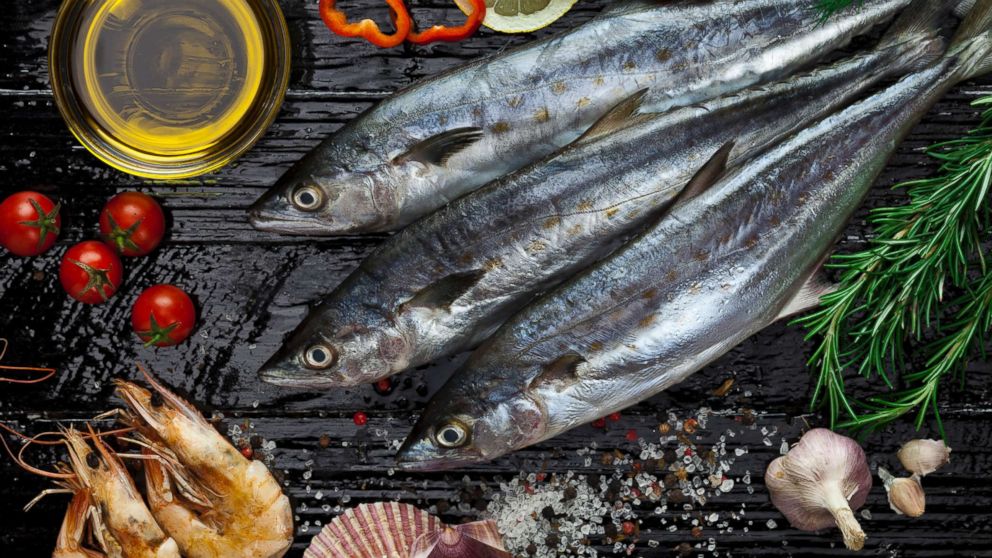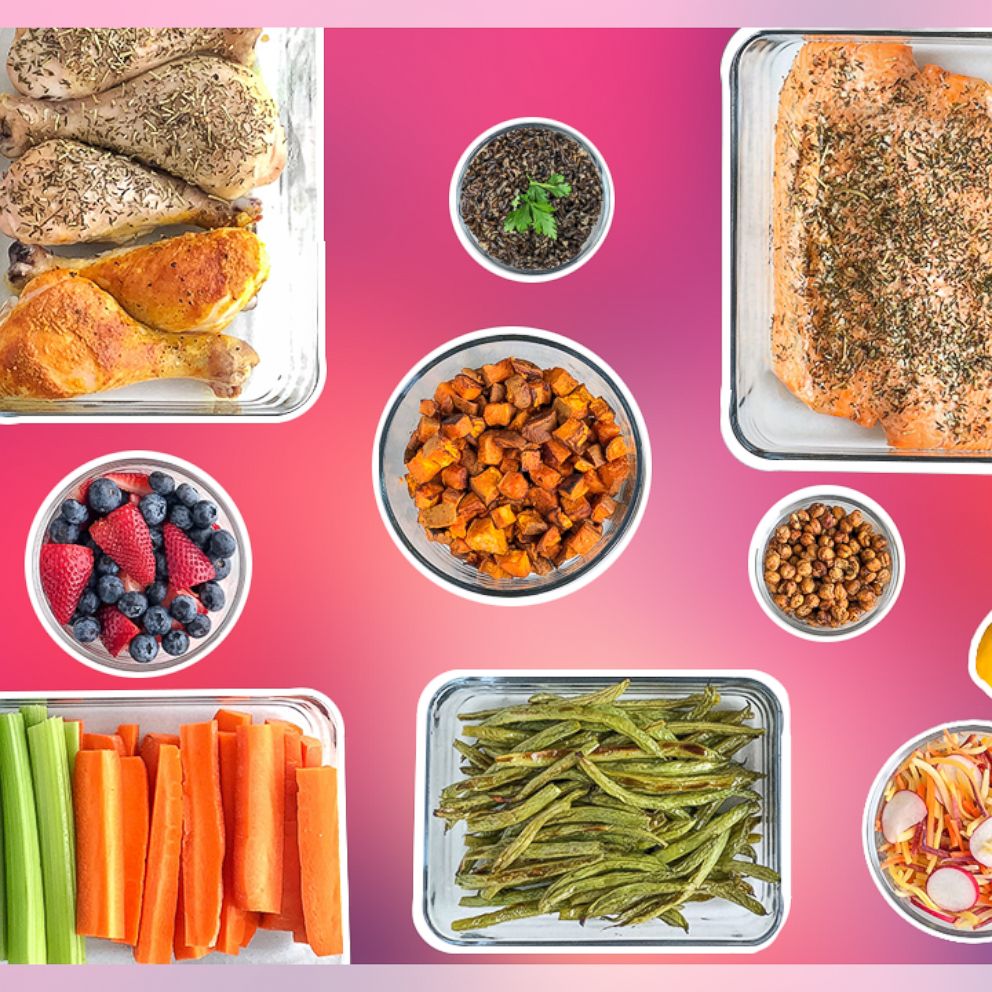Nordic diet makes its way on best diets for 2019 list: What to know about eating like a Viking
A plant-based diet that encourages eating like the Vikings did has made it for the first time onto the U.S. News and World Report’s annual diet rankings.
The Nordic diet, focused on vegetables, whole grains, fatty fish and berries, is tied for third place in the best plant-based diets on U.S. News and World Report’s newly-released list of best diets for 2019.
The diet, named for the region that includes Norway, Iceland, Finland, Denmark, and Sweden, is an example of a growing interest in diets followed by some of the healthiest people in the world, according to Angela Haupt, assistant managing editor of health at U.S. News and World Report.
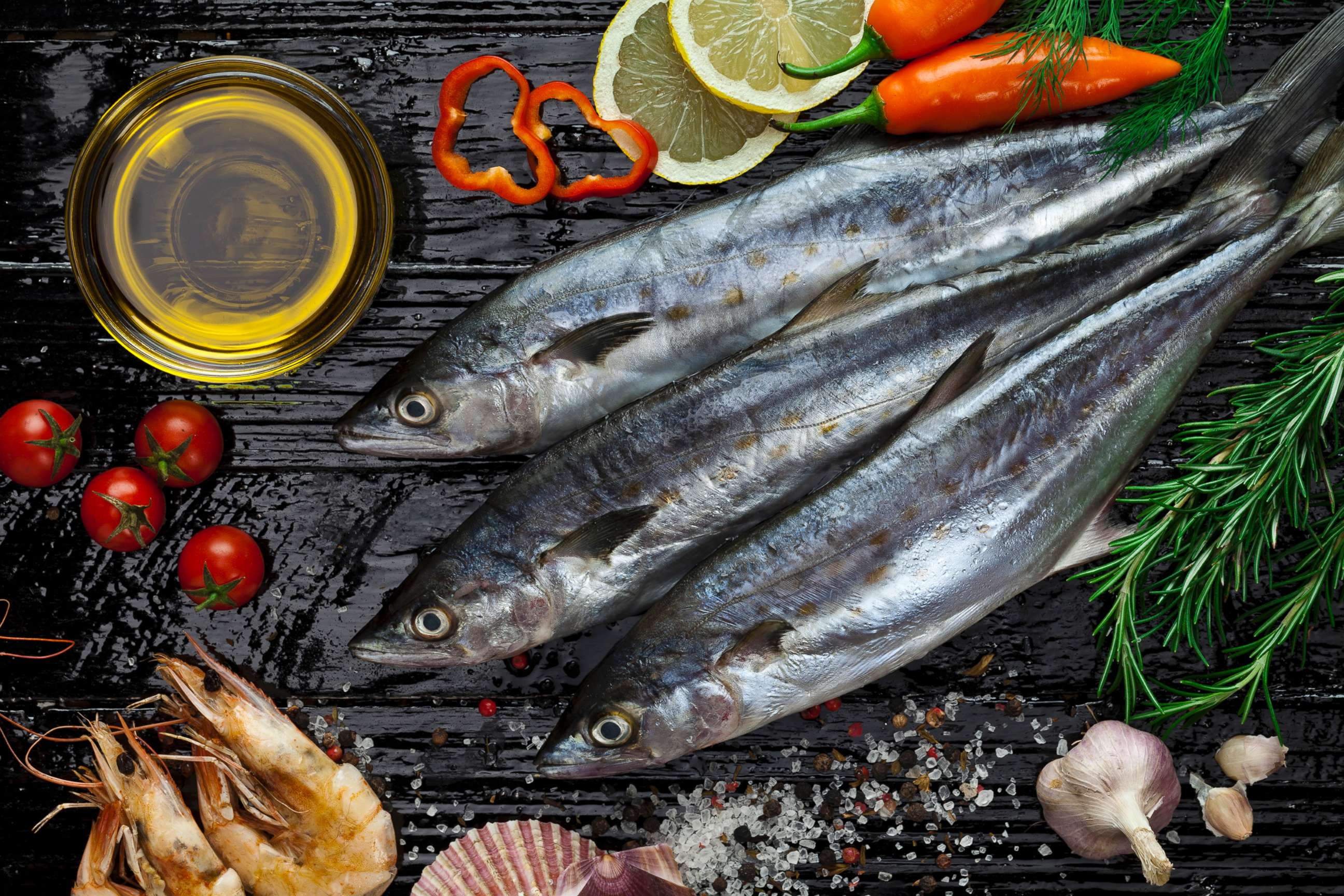
“We are seeing an interest in people eating to mimic the eating patterns of people in spots of the world where people are particularly healthy,” she said. “People are looking at what we can learn from them.”
(MORE: Holiday hangover? Here are tips to beat belly bloat)
Another diet based on a healthy region of the world, the Mediterranean diet, holds the top overall spot this year for the first time in U.S. News and World Report’s rankings.
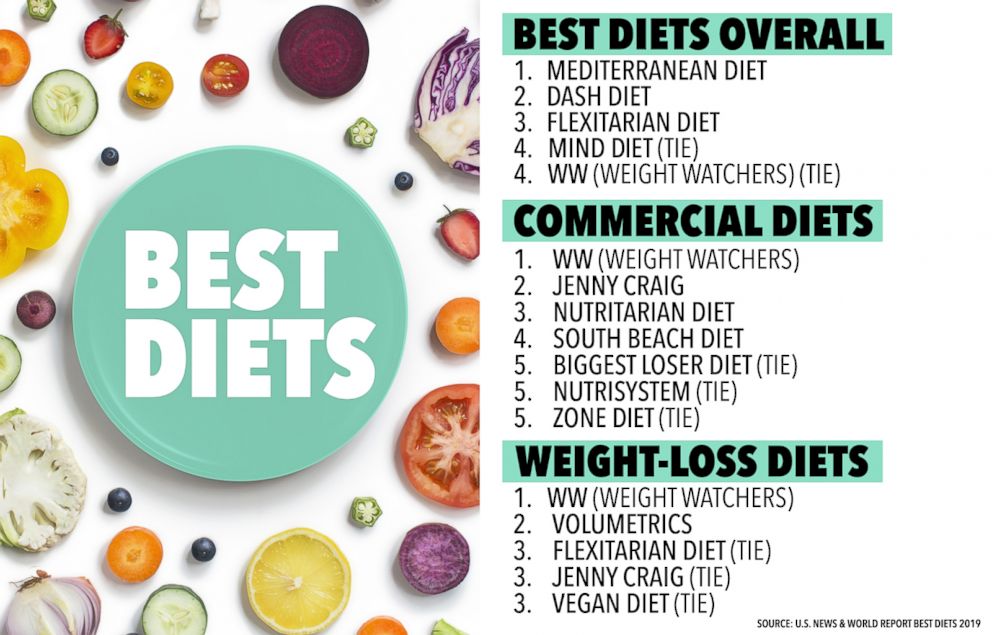
It is followed by the DASH Diet, which tied the with Mediterranean diet for the top spot last year. The DASH diet had been ranked as the No. 1 overall diet by U.S. News and World Report for the previous eight consecutive rankings.
“These diets that are consistently top performers are scoring well, from nutrition to helpfulness, ease, ability to help prevent chronic conditions and more,” Haupt said. “It reinforces that everything we’ve been told about dieting and weight loss does remain true.”
(MORE: How to meal prep like a boss in 2019)
“The top diets promote eating the foods that we’ve been told to eat, like whole grains, fruits and veggies, and going easy on sugar and saturated fat,” she added. “Those things may seem mundane because they’re so basic and yet we see year over year that those are the diets that work and have staying power and are the healthiest for us.”
Some of the trendiest diets, like ketogenic and Whole30, again fell to the bottom of the overall diet rankings. Those two diets tied for the 38th spot out of 41 diet plans reviewed by U.S. News and World Report’s panel of medical experts.
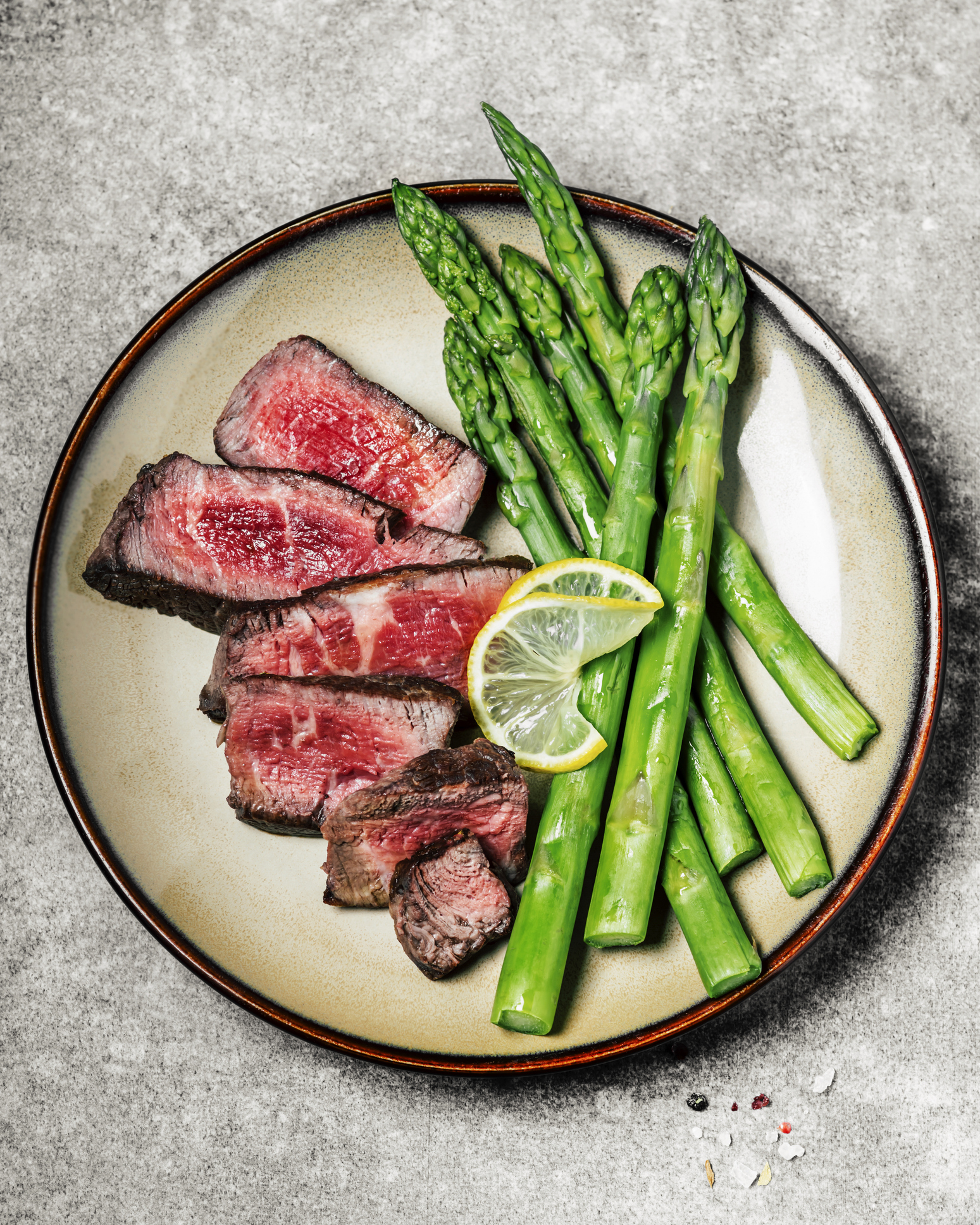
The Dukan Diet, which promotes a strict, high-protein way of eating, took last place for 2019.
“Every year we have a new fad or trend or a flashy diet but that trickery doesn’t amount to much and you don’t need something that’s excited or really even complicated,” Haupt said. “At the end of the day, it comes to down to these common sense, unsurprising nutrition rules that we know.”
The ketogenic, or keto, diet, which focuses on high-fat, low carbohydrate eating, jumped 11 spots to tie for the No. 2 ranking for Best Fast Weight Loss, showing the diet works for weight loss but may not be sustainable or healthy, according to Haupt.
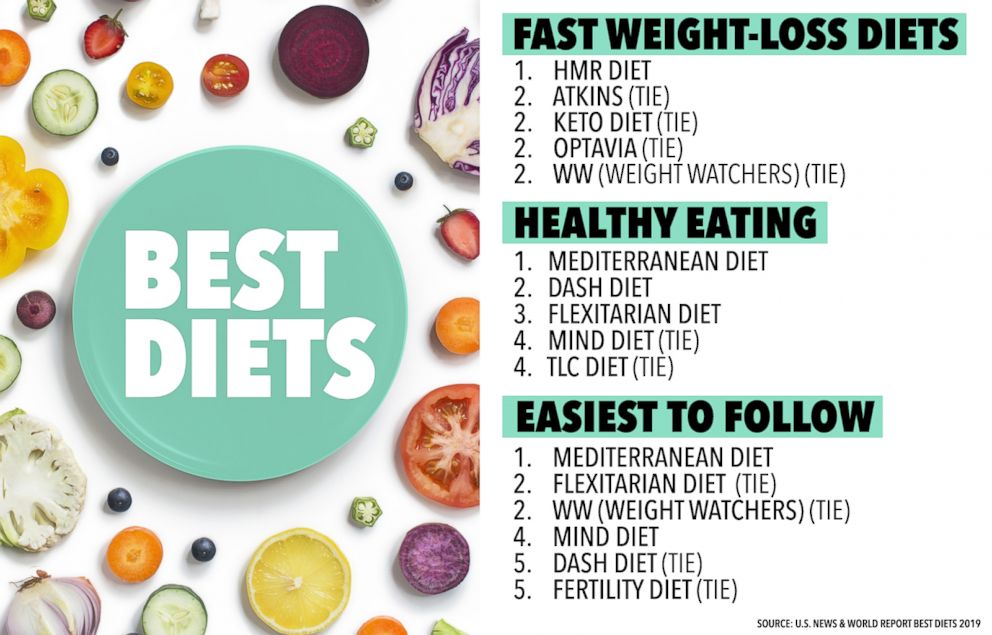
“Our experts say [keto] is effective for short-term weight loss but they all emphasized it does not mean it’s a good idea for long-term health,” she said. “One expert said it actually contradicts everything we know about long-term health.”
Here is a breakdown of the diets that rounded out the top five in U.S. News and World Report's 2019 Best Diets Overall ranking.
1. Mediterranean diet
The Mediterranean diet is an eating pattern that emulates how people in the Mediterranean region have traditionally eaten, with a focus on foods like olive oil, fish and vegetables.
U.S. News and World Report called the diet a "well-balanced eating plan" and pointed to research that suggests the diet helps prevent some chronic diseases and increases longevity.
The Mediterranean diet emphasizes eating fruits, veggies, whole grains, beans, nuts, legumes, olive oil and flavorful herbs and spices; fish and seafood at least a couple of times a week; and poultry, eggs, cheese and yogurt in moderation, according to U.S. News and World Report.
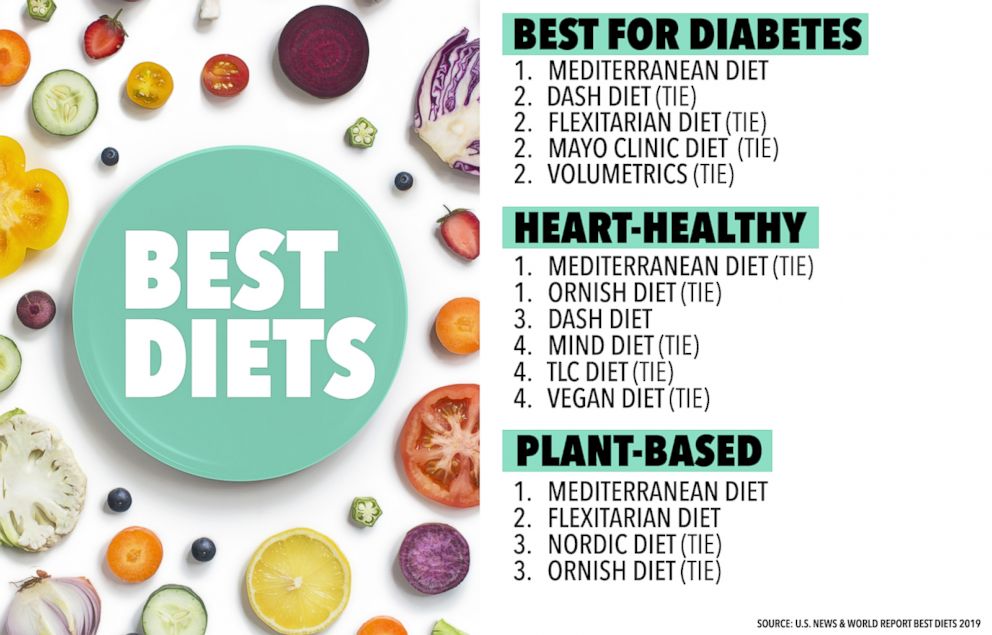
2. DASH diet
The DASH diet, made up of low-sodium and healthful foods, was originally started by the National Heart, Lung, and Blood Institute (NHLBI) as a diet to help reduce blood pressure.
The NHLBI publishes free guides on the plan so you can see if it is right for you.
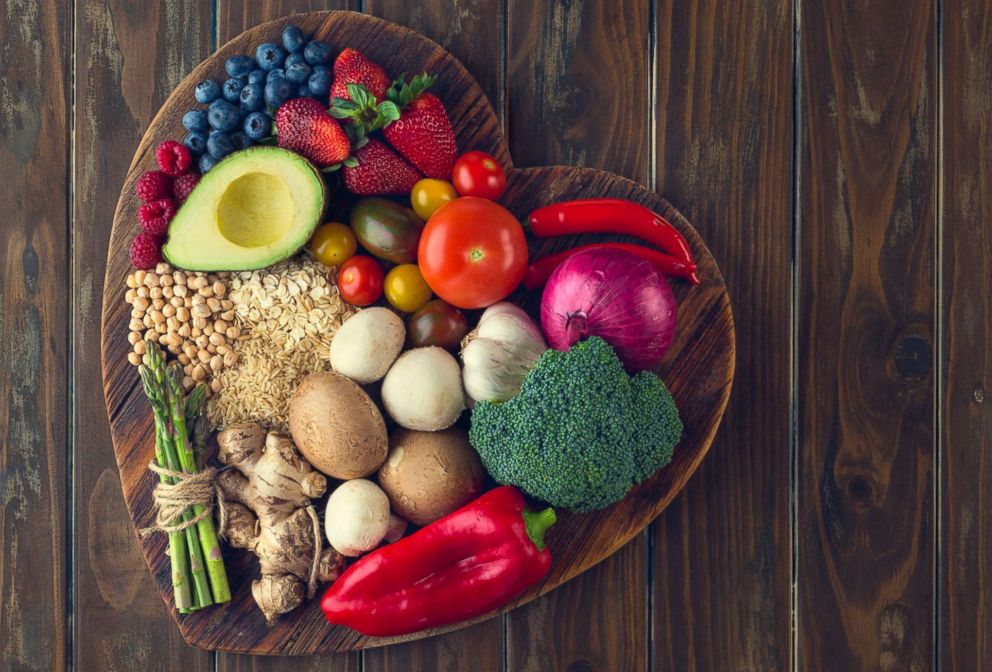
The plan focuses on fruit, vegetables, whole grain, lean protein and low-fat dairy and eliminates foods high in fat and sugar-sweetened drinks and sweets, according to U.S. News and World Report.
A 2018 study found the DASH diet can reduce the risk of depression later in life.
3. Flexitarian diet
The flexitarian diet encourages people to try alternative meat options, like tofu, but leaves room for flexibility if you can't quite fully give up meat. The diet was promoted by dietitian Dawn Jackson Blatner in a 2009 book that says you can reap the benefits of a plant-heavy diet even if you eat meat occasionally, according to U.S. News and World Report.
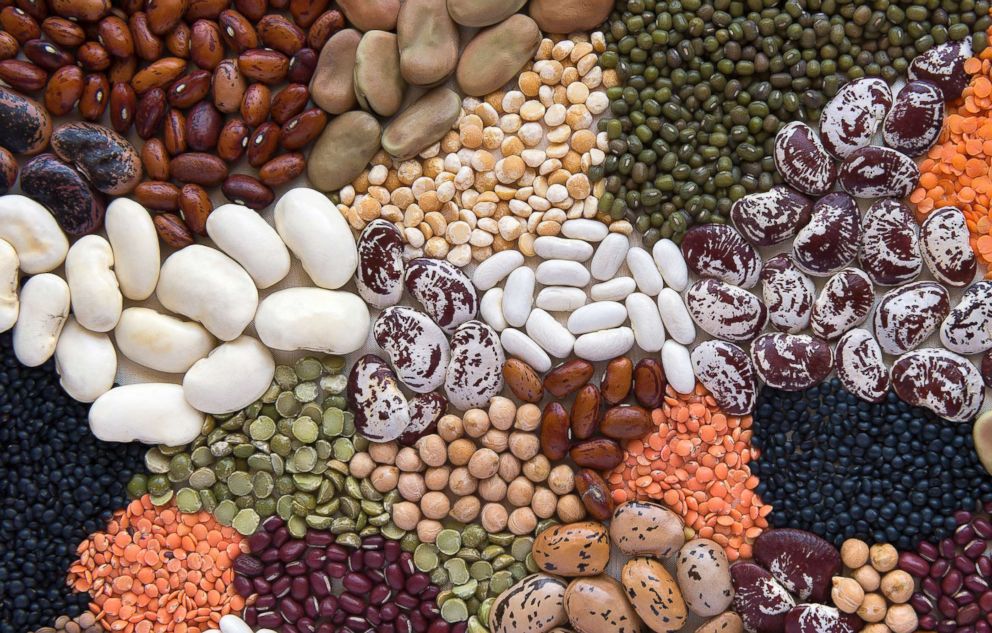
This plant-heavy diet focuses on adding five food groups -- "new meat," fruits and vegetables, whole grains, dairy and sugar and spices -- to your diet, instead of taking foods away.
The "new meat" food group includes tofu, beans, lentils, peas, nuts, seeds and eggs, according to U.S. News and World Report.
4. MIND diet

The Mediterranean-DASH Intervention for Neurodegenerative Delay (MIND) diet, ranked five last year, is a hybrid of the top-rated DASH and Mediterranean diets.
The diet focuses on "10 brain-healthy food groups: green leafy vegetables in particular, all other vegetables, nuts, berries, beans, whole grains, fish, poultry, olive oil and wine," according to U.S. News and World Report.
Among the diet's requirements is eating three servings of whole grains, a salad and another vegetable daily, as well as a single glass of wine if desired.
4. WW
WW, formerly Weight Watchers, ranked in the top five for best diets overall and also obtained the No. 1 rankings for Best Commercial Diet and Best Weight Loss Diet for 2019.
The program, which is backed by Oprah Winfrey and recently signed on Kate Hudson as an ambassador, rebranded in 2018 with a new name, WW, and a focus on wellness.
WW's Freestyle program applies points values to foods, with higher points for foods high in saturated fats and sugars, and lower points for foods with high levels of protein.
WW offers its members support online and is well-known for its in-person group meetings.
